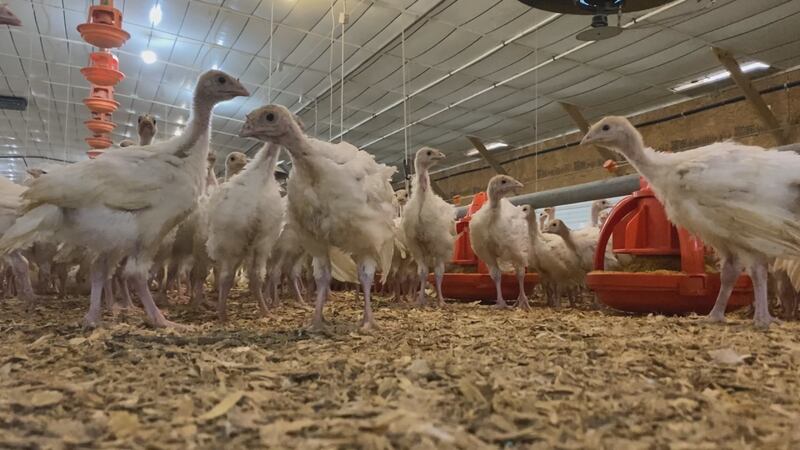Suspected case of bird flu detected in Tennessee, state vet reports
The case was detected in West Tennessee and is affecting a commercial chicken facility.

NASHVILLE, Tenn. (WSMV) - A suspected case of highly pathogenic avian influenza (HPAI) has been reported by the Tennessee State Veterinarian, according to the Tennessee Department of Agriculture.
TDA said the case was detected in West Tennessee, affecting a commercial chicken facility in Gibson County.
Birds were sent to the Breathitt Veterinary Center Laboratory in Hopkinsville, Ky. for testing after a sudden spike in deaths in the flock. Testing determined the cause to likely be HPAI, but sequencing to determine the specific strain is still pending.
“Although we are awaiting final confirmation, we are confident the illness affecting this flock is HPAI,” Dr. Samantha Beaty said. “HPAI continues to circulate in our environment, particularly in the wild bird population. As always, we strongly encourage people who own birds to practice strong biosecurity to protect their flock.”
TDA said HPAI is “a highly transmissible disease known to be deadly to domesticated fowl.” Fowl exposure can come from human interaction and contact with wild birds.
A control zone surrounding a little over six miles of the facility has been established, so poultry within it can be tested and monitored for illness.
TDA said HPAI does not affect food safety, but infected poultry is not allowed to enter the food supply. They also added that human infection of HPAI during poultry outbreaks is “very low.”
The TDA also provided a list of guidance for bird owners:
- Wash your hands thoroughly before and after interacting with domesticated birds.
- Dedicate a pair of shoes to only be worn in coops or poultry houses and clean those shoes after each visit.
- Regularly disinfect any equipment used in coops or poultry houses.
- Deter wild birds from interacting with domesticated birds. Consider hanging pie pans or other noisemakers in trees or, if local rules allow, set off firecrackers intermittently or when you see vultures or geese on your property.
- Look for signs of illness and report a sudden increase in the number of sick birds or bird deaths to the Tennessee State Veterinarian’s office at (615) 837-5120 and/or USDA at 1-866-536-7593.
HPAI resources can be found on TDA’s website.
Copyright 2024 WSMV. All rights reserved.











